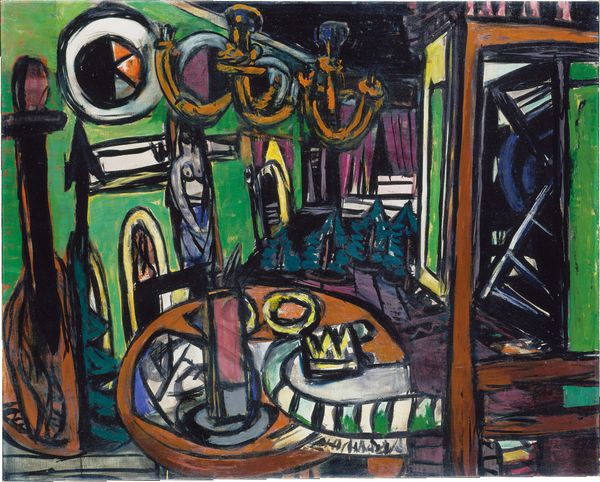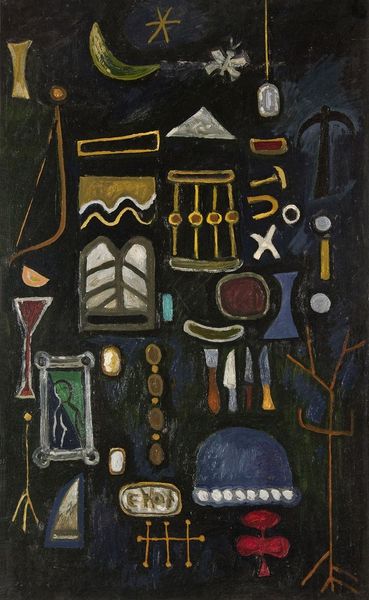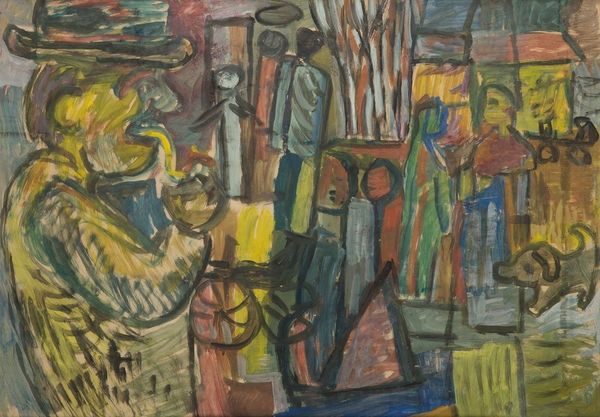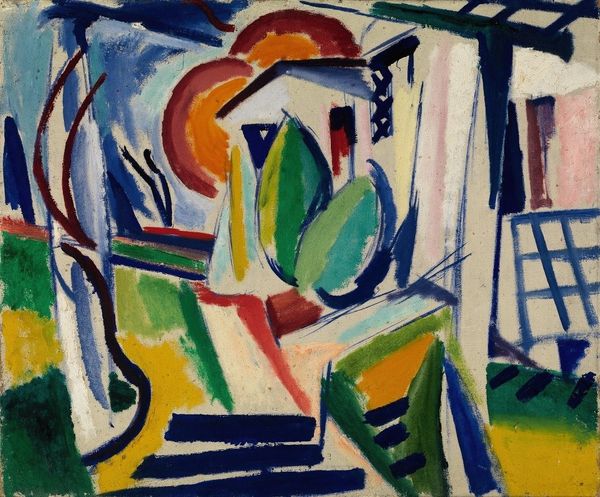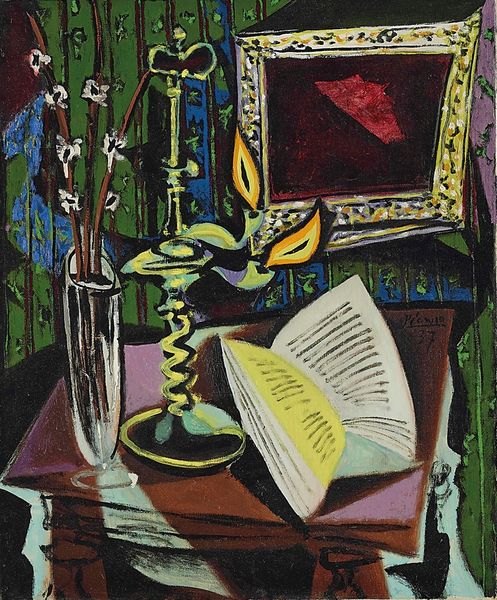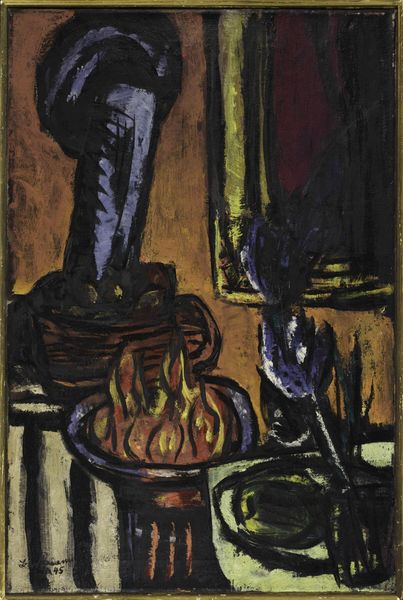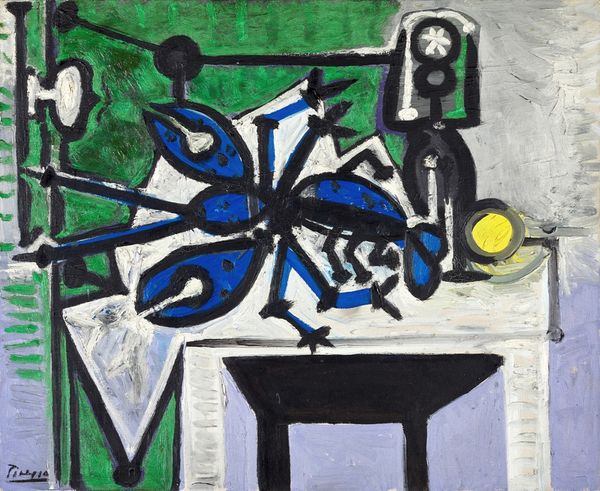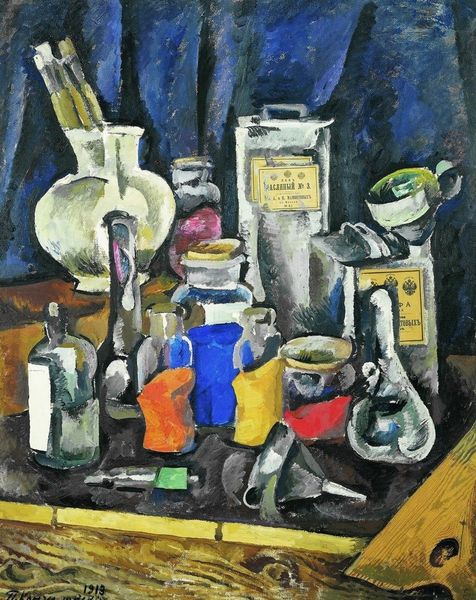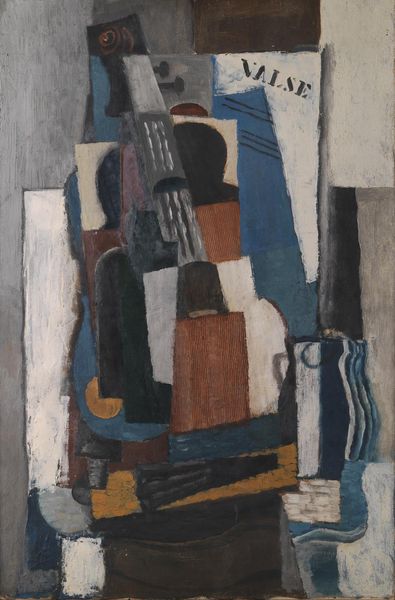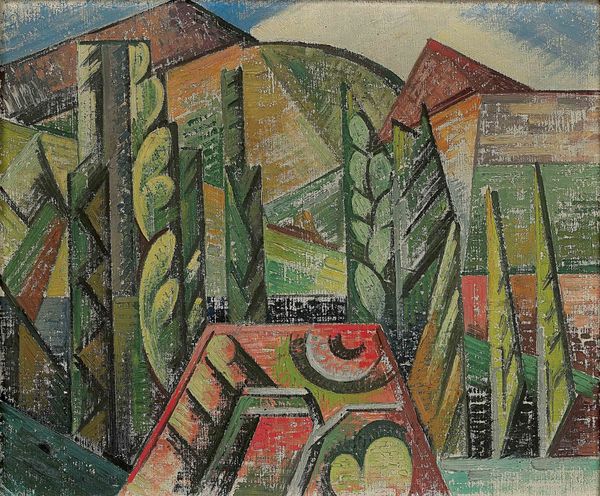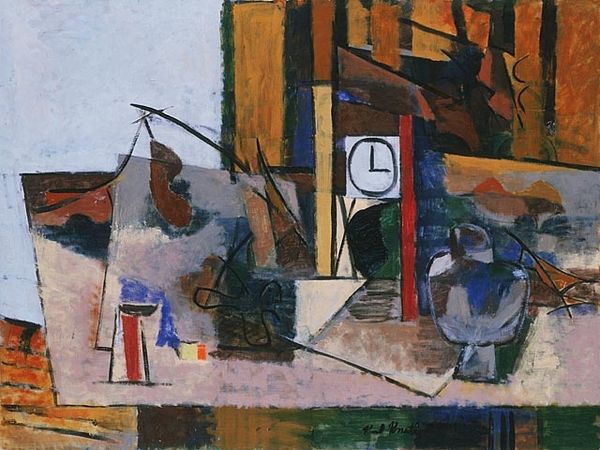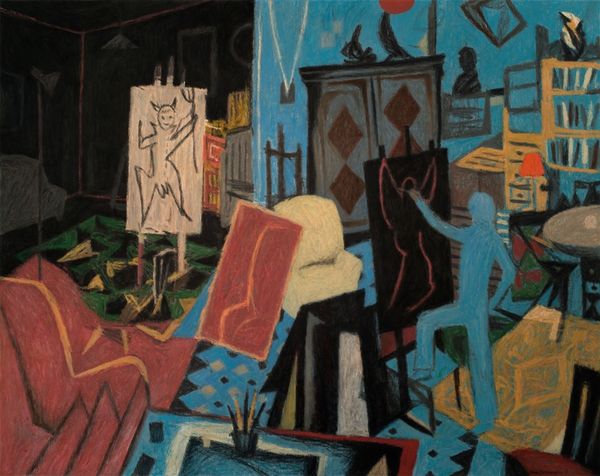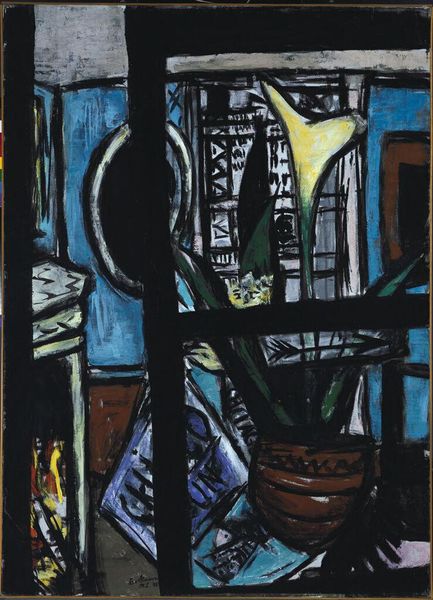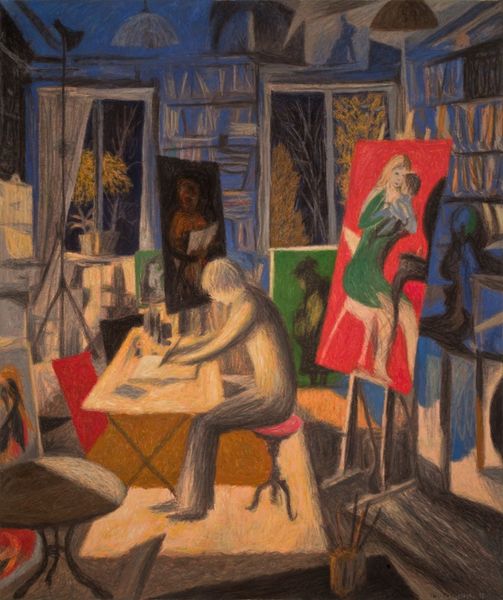
Dimensions: support: 809 x 649 mm frame: 1090 x 927 x 72 mm
Copyright: © Succession Picasso/DACS 2014 | CC-BY-NC-ND 4.0 DEED, Photo: Tate
Editor: Here we have Picasso’s *The Studio,* part of the Tate collection. It's awash with light and airy colors. What do you see in this piece, particularly in the symbols he chooses? Curator: The window, acting as a proscenium, frames palm trees, themselves traditional symbols of victory and eternal life. Notice the palette: how do these optimistic colors inform your understanding of the space? Editor: It does feel very celebratory, but there's also a disquieting faceless bust. It's unsettling. Curator: Indeed. The bust could symbolize creative potential, but devoid of features, it becomes a mirror, reflecting our own anxieties about artistic creation and mortality. Editor: I see it now. It's like a stage for both celebration and self-reflection. Curator: Precisely. Picasso masterfully uses symbols to prompt a dialogue with the viewer about art, life, and everything in between.
Comments
Join the conversation
Join millions of artists and users on Artera today and experience the ultimate creative platform.
tate 9 months ago
⋮
This painting depicts the studio at ‘La Californie’, the large Art Nouveau villa near Cannes where Picasso and his partner Jacqueline Roque moved in the summer of 1955. In October and November of that year Picasso depicted his studio twelve times. The room is empty but Picasso’s presence is strongly felt in his tools and the sculpted head on a modelling stand. The studio had been a favourite subject for his friend and rival Henri Matisse, and it has been suggested that this series was a direct response to the artist’s death the previous year. Gallery label, September 2008
